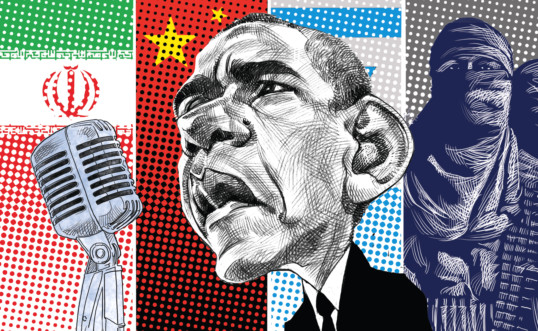
United States President Barack Obama used his penultimate state-of-the-union address on Tuesday to try to reframe US domestic politics for the next two years. Declaring that the American resurgence is real, he made the case for why the country now needs a period of greater shared prosperity after the worst economic downturn since the 1930s.
Obama has made much of the fact that 2014 was the fastest year for job growth since the 1990s with unemployment falling faster than any year since 1984. His speech underlines that in 2015 he will increasingly seek to draw a line under the first six years of his presidency and emphasise that “America is now in a position to really turn the page”.
His core policy ambition is that, after a very tough economic period for many, “every American [should] feel that they’re a part of our country’s comeback”.
Yet, despite outlining new high profile initiatives to further this, including making community college free for many students, and expanding paid family leave for new parents, much of his domestic agenda is likely to be stymied by the Republican-controlled Congress.
While some argue that this leaves Obama as a complete ‘lame duck’ president, more likely is that it will accentuate his focus on foreign policy. With the economic recovery now well underway, he could still secure significant international achievements to consolidate his legacy and has already promised “surprises” in the next two years.
This would consolidate some of the unexpected, dramatic foreign policy moves he has made in recent weeks. These range from the normalisation of US relations with Cuba, and a climate accord with China that the White House hopes will help facilitate a new global climate deal this autumn to replace the expiring Kyoto Protocol.
That Obama’s presidency still has foreign policy potency is underscored by the fact that several of his two-term predecessors have secured significant international achievements in the twilight years of their presidencies. For instance, the last Democratic president, Bill Clinton, who, in his last two years in office in 1999 and 2000 faced a wholly-Republican Congress, won landmark congressional approval in October 2000 for so-called Permanent Normal Trade Relations with China.
This is the status given to key US trading partners, which are eligible to receive low tariffs and other concessions in exchange for similar benefits. This important legislative victory, alongside subsequent US international diplomacy, set the stage for Beijing to join the World Trade Organisation about a year afterwards.
Clinton was also commander-in-chief of US forces during the several-month long Nato bombing campaign against Serbia during the Kosovo conflict in 1999. This military action, in concert with diplomacy with Russia, created the pathway that led to Yugoslav president Slobodan Milosevic losing power in 2000.
The presidency of Ronald Reagan also underlines the potential for significant foreign policy achievements in the final years of office. Reagan, who faced a Democrat-controlled Senate and House of Representatives, secured a number of significant international achievements in 1987 and 1988 that helped bring an end to the Cold War.
In particular, he held two key summits with Soviet leader Mikhail Gorbachev in Washington in 1987, where the Intermediate-Range Nuclear Forces Treaty was signed, and Moscow in 1988. And in November 1989, only 10 months after Reagan left office, the Berlin Wall came down paving the way for the collapse of Soviet Communism.
New peace initiative
The potential for significant further US foreign policy achievements for Obama is clear. For instance, post-March’s Israeli election, the president may well seek one last push by his administration towards a new peace initiative between the Palestinians and Israelis. While the odds would be against a breakthrough, it should be remembered that the last time such peace talks appeared to come close to potentially significant agreement was in the final summer of Clinton’s presidency, at the Camp David Summit in 2000.
Also in the Middle East, Obama wants to significantly deplete the territorial foothold and capabilities of Daesh (the so-called Islamic State of Iraq and the Levant). And there remains the possibility of a comprehensive, permanent nuclear agreement with Iran, which would help consolidate Obama’s broader desire to enhance global nuclear security. As well as inter-state nuclear diplomacy, the US administration has created the Nuclear Security Summit process to counter nuclear terrorism, which the president has described as the “most immediate and extreme threat to global security”.
On the security front, the president of the new national unity government in Afghanistan last year concluded a security treaty that will see a continuing US and Nato force of around 12,000 troops in the country in 2015.
On the trade front, the White House is negotiating the Trans-Pacific Partnership with around a dozen countries in the Americas and Asia-Pacific that collectively account for about 40 per cent of global GDP. This is one key element of Obama’s ambition for a reorientation of US international policy towards the Asia-Pacific region.
Moreover, Obama also wants to secure the Transatlantic Trade and Investment Partnership with the 28 European Union states. This would represent the largest regional free trade and investment agreement in history with the US and Europe accounting for more than 50 per cent of the world’s GDP.
Taken overall, the economic recovery means that Obama’s focus on foreign policy will probably only intensify further in 2015 and 2016. He could still secure significant achievements on the defence, security and trade fronts to bolster his presidential legacy, which has been buoyed by the US economic rebound after the worst economic downturn since the 1930s.
Credit: Andrew Hammond is an Associate at LSE Ideas at the London School of Economics. He was formerly a special adviser in the UK Government.











